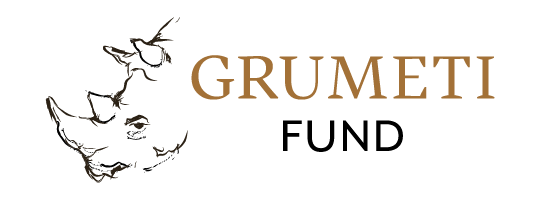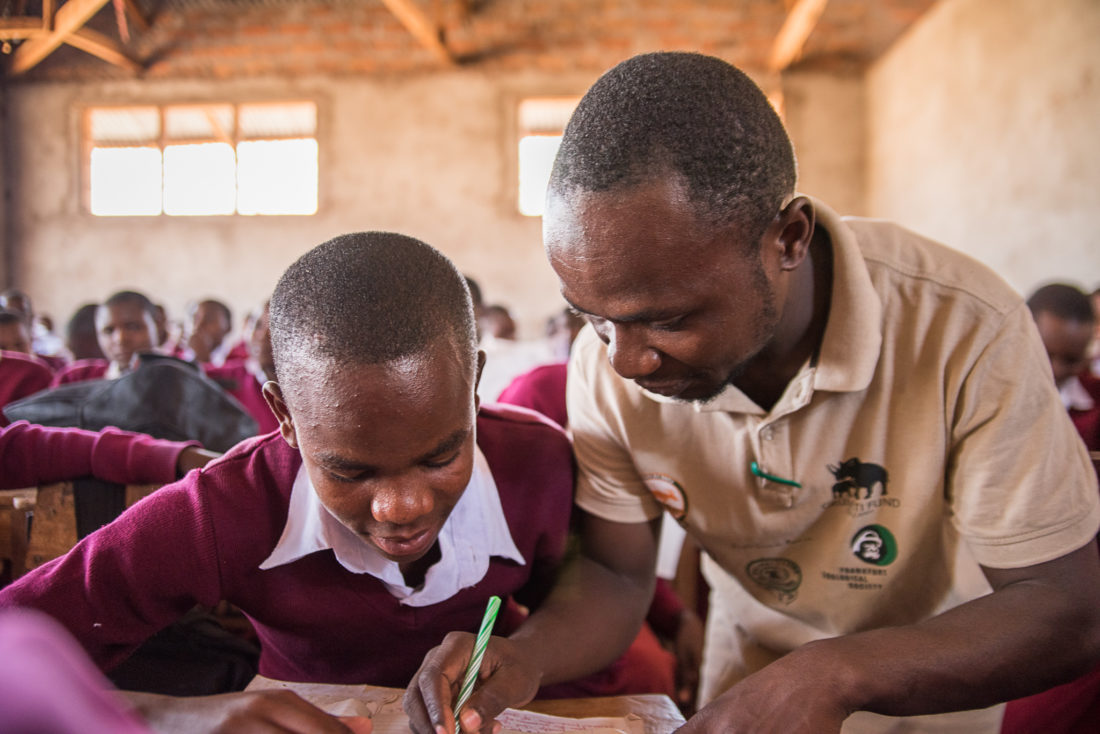Teacher Training Program
An excerpt from Patricia Thornton’s WorldView Blog
Karibu is Kiswahili for “welcome,” and it may as well be the national word of Tanzania. I learned a lot about Tanzania’s welcoming spirit during my two weeks of teaching language methodologies on the Serengeti plain.
In Tanzania, secondary and university level education is taught in English, whereas primary schools use Swahili for instruction and introduce English as a subject. Children who do not become fluent in English generally do not go on to further education after primary grades. Without English fluency, employment options in the Serengeti are very limited, and illegal poaching of wildlife can become a default economic choice. So English opens the door to a better future.

Patricia and the teachers during the training sessions
With this in mind, the Grumeti Fund approached Concordia Language Villages to bring a more communicative approach to teaching English to primary school children. In 2017, the Villages offered its first summer day camps together with the Fund. And that’s how I ended up in Tanzania … to expand the project to two one-week professional development sessions for English teachers in the communities that border the Grumeti Reserve. I knew from the start that this would not be a workshop like any I had conducted before. I didn’t know much about the teaching styles or conditions there.

Some of the students from the english immersion camp program
After observing three different classrooms in local villages and coming to understand the educational style of the teachers’ own experience, the training style they had received as educators, the circumstances under which they teach, and the teaching materials they do not have, it became very clear to me that my original workshop approach was a bridge too far. I decided to focus on activities that promote student language production, rather than student responses to direct questioning on memorized material, and to incorporate activities through backward design. Using a template I had developed for Language Villages staff, I honed in on two questions: What’s my goal? (what do I want my students to know and be able to do at the end of my class period?), and How will I know? (what student performances/activities will show me that students learned what I taught?). These two simple questions gave the Tanzanian teachers a solid rationale and foundational explanation for why teaching with activities helps learners internalize language.
Some of the English language workshop attendees are teaching in classrooms with 100 students and no space for movement in the room, in addition to a complete lack of supplies. I addressed the realities of those issues head-on. We talked openly about activities that might not work at all, or might work only if adapted. In the end, we moved the needle, and we had fun doing so. The weeklong session had been very productive for the teachers and each left with a renewed attitude toward teaching and a willingness to try some new approaches.

Thank you Scholastic for the donation of children’s books, which the teachers from this training were able to take back to their classrooms.
While at Grumeti, I went to sleep hearing the low whines of insects and wildlife and awoke to the thrilling sights of bull elephants and giraffes browsing outside my room. But nothing I experienced there topped the warmth, the genuineness, and the hearts of the Tanzanian people. I am grateful to all the amazing people I met who made me feel so at home, so ‘karibu’, in a place so very unlike home.
Your support of the Grumeti Fund’s language program is extremely valuable – click here to get involved.




